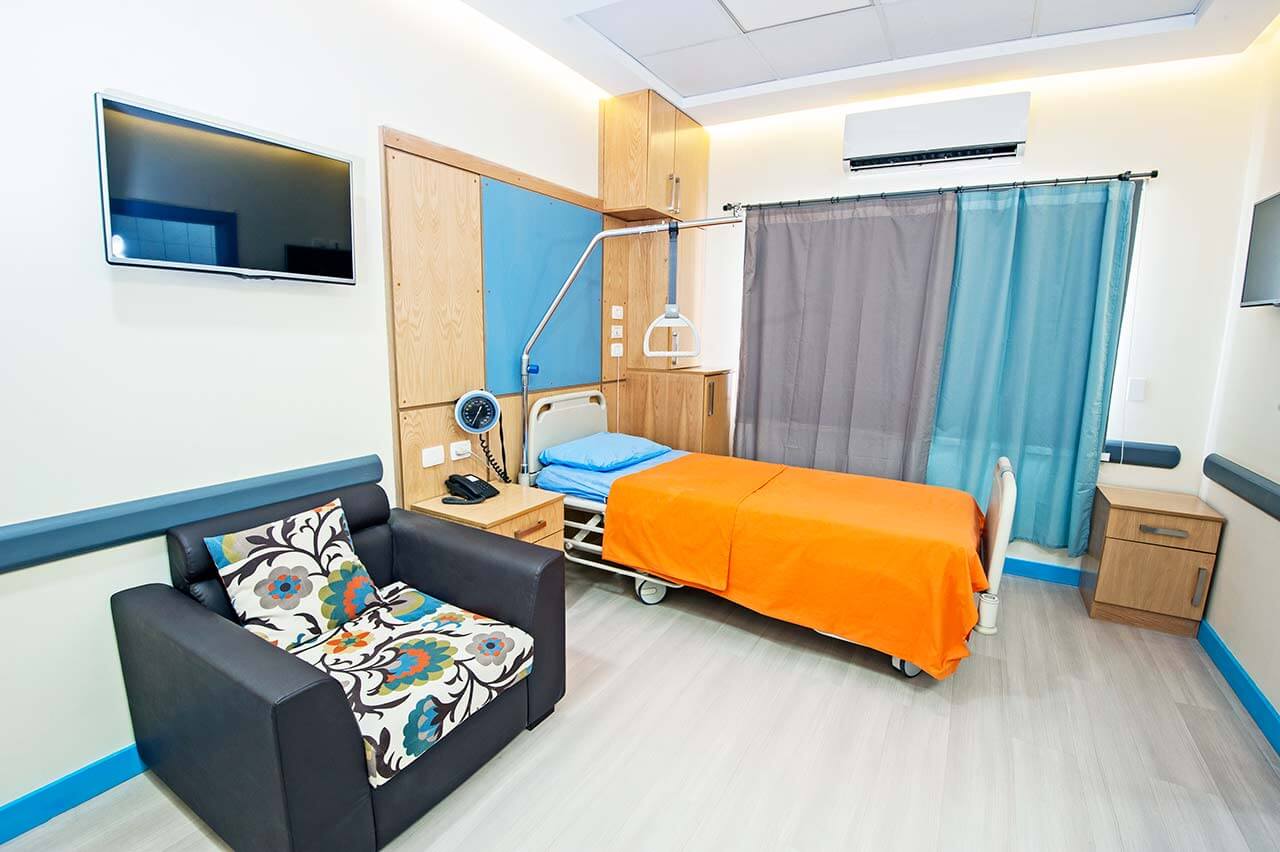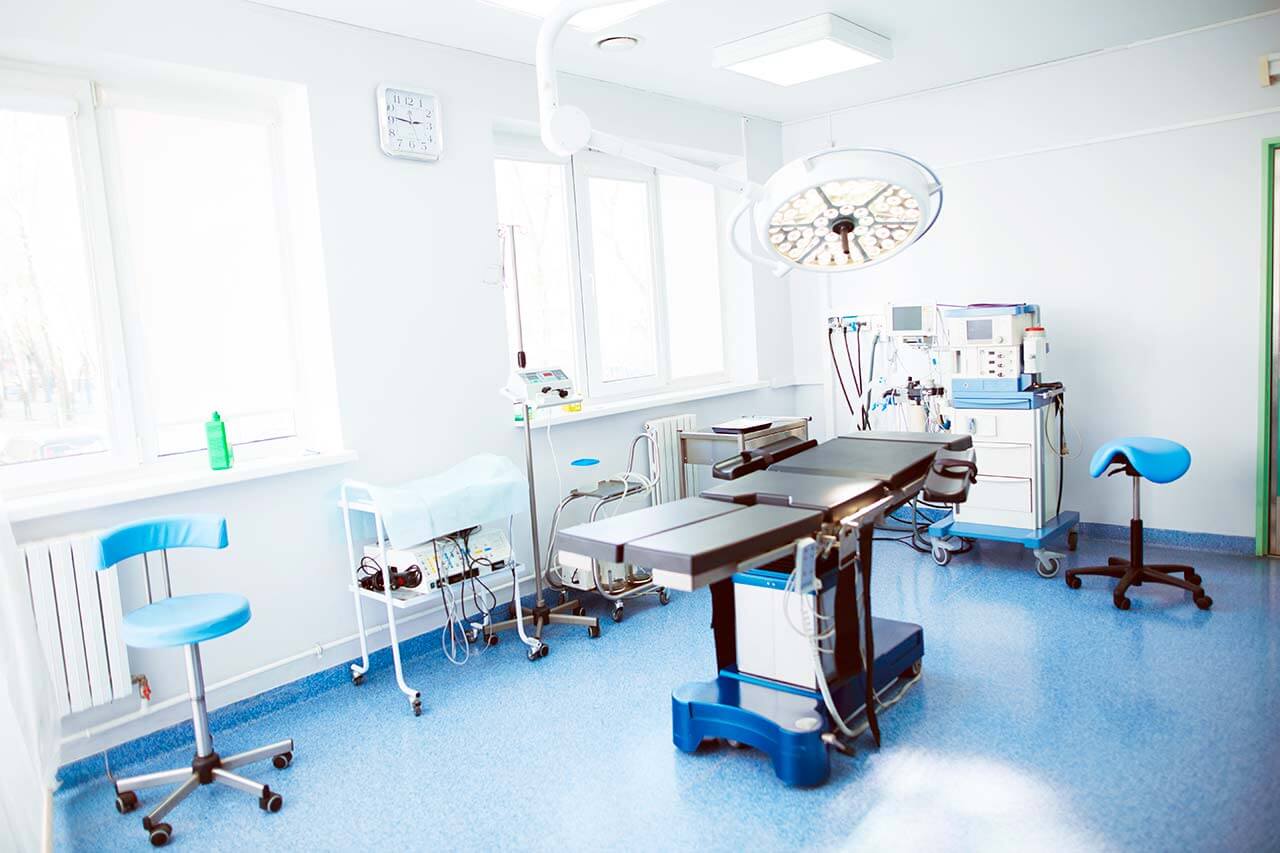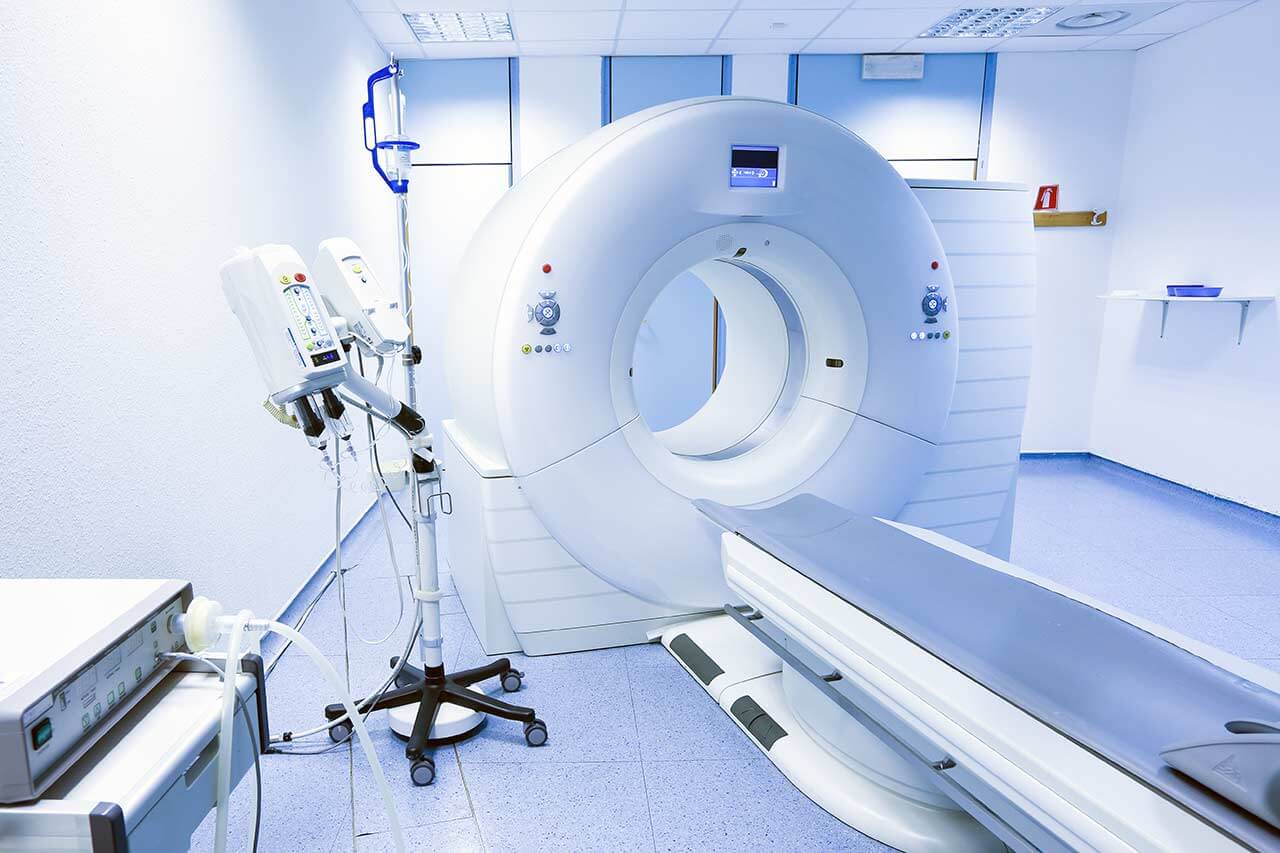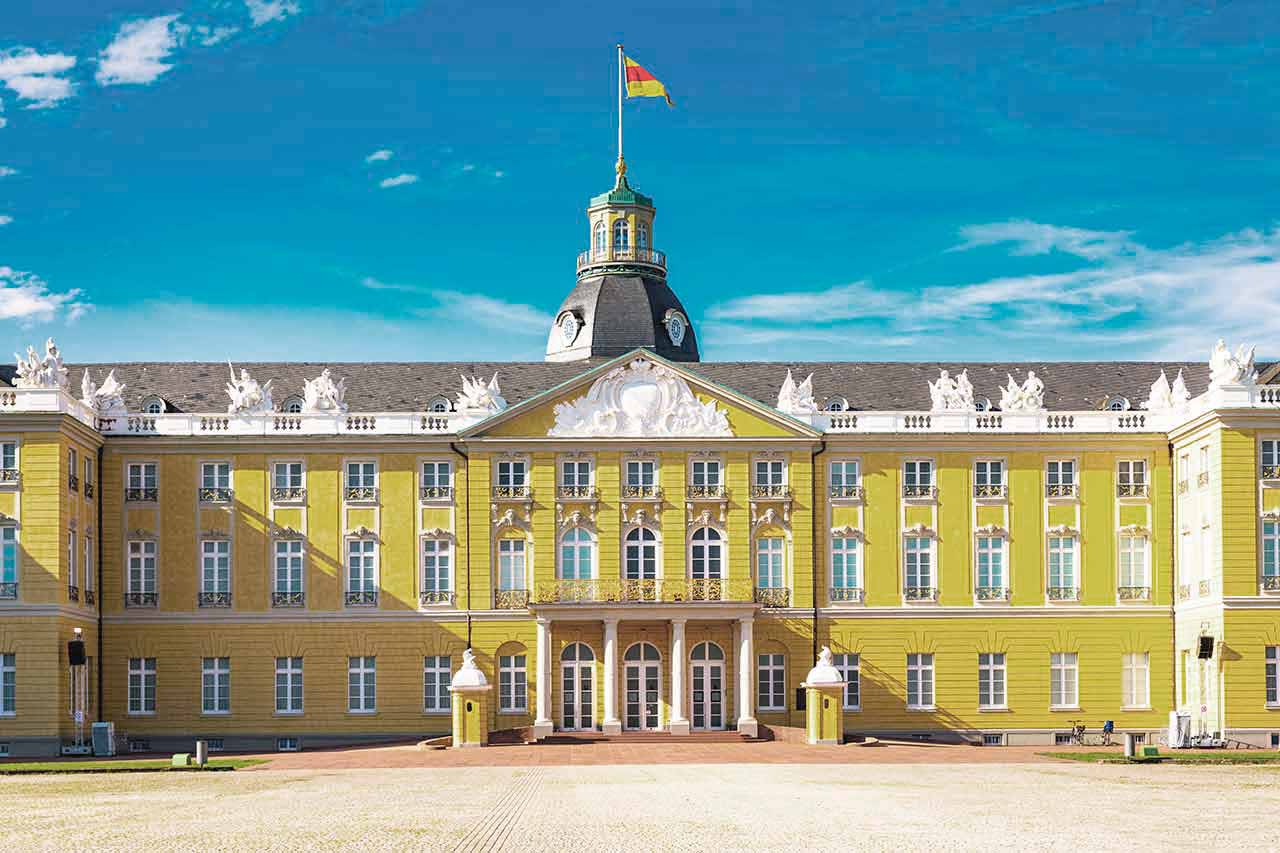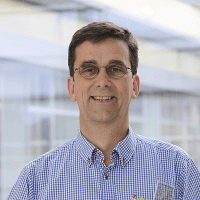
The program includes:
- Initial presentation in the clinic
- clinical history taking
- review of medical records
- physical examination
- laboratory tests:
- complete blood count
- biochemical blood test
- inflammation markers (CRP, ESR)
- blood coagulation analysis (aPTT, PT, INR)
- neurological examination
- electrophysiology study (if indicated clinically)
- CT/MRI scan
(if indicated clinically, additional cost is 650/1200€) - differential diagnosis with other neurological diseases
- nursing services
- consultation of related specialists
- treatment by chief physician and all leading experts
- explanation of individual treatment plan
Required documents
- Medical records
- MRI/CT scan (if available)
Service
You may also book:
 BookingHealth Price from:
BookingHealth Price from:
About the department
The Department of Pediatric Neurology and Epileptology at the Municipal Hospital Karlsruhe specializes in the diagnostics and treatment of congenital and acquired diseases of the nervous system: pathologies of the brain and spinal cord, as well as neuromuscular disorders. The doctors of the medical facility are especially focused on the treatment of epilepsy – the department has been certified by the German Society of Epileptology (DGfE). Depending on the severity of the disease and its course, both inpatient or outpatient medical care is offered, for example, the diagnostics and treatment of all acute neuropediatric diseases are carried out only on an inpatient basis. The department's specialists have modern equipment for a comprehensive examination of the child's nervous system, the results of which are the basis for developing the most effective treatment regimen. The healthcare professionals use the very latest drugs during the treatment in order to completely eliminate a neurological disorder or compensate for its symptoms, providing the child with a high quality of life. Only highly qualified experts work with young patients, who can find optimal solutions even in extremely complex clinical cases. The department is headed by Dr. med. Peter Krieg.
The department's excellent equipment and modern infrastructure, as well as the availability of effective treatment methods and reliable medicines create optimal conditions for providing top-class medical services for the diagnostics, treatment and follow-up monitoring of the young patients with diseases of the nervous system. In addition to standard diagnostic protocols, including laboratory tests, brain imaging, encephalography and myography, innovative genetic tests and unique neuropsychological diagnostic programs are actively used here. The procedures of this kind allow the doctors to obtain comprehensive information about the condition of the child, detect the cause of the development of the pathology and choose the most effective treatment tactics. It is also worth noting that the treatment of neurological disorders in children requires a special approach, so the specialists from the related disciplines are often involved in the process.
One of the key focuses of the department's clinical practice is the provision of medical care to children suffering from epilepsy. The main manifestation of the pathology are spontaneous periodic convulsive seizures caused by changes in the electrical activity of the brain. During such seizures, the child usually loses consciousness, breathing is disturbed, involuntary urination is possible, the child rolls his eyes and makes sudden head movements. Epilepsy is a complex disease that has many clinical forms, making its diagnostics a complicated task. The main diagnostic methods are electroencephalography and magnetic resonance imaging. An assessment of the child's mental development is also required, since epilepsy often provokes mental disorders. Should the diagnosis be confirmed, the doctors will determine the exact type of epilepsy and begin planning the treatment that will allow the child to permanently get rid of epileptic seizures and lead a full life. To combat epilepsy, the department's pediatric neurologists use modern anticonvulsants. The specialists usually prescribe a single medication, and as the intensity of the seizures decreases, the dosage of the medication is gradually reduced until it is completely canceled. The course of drug therapy for epilepsy in children is quite long and takes years. At the same time, it is important to strictly follow the specialist's prescriptions and take the drugs until the end of the course, even if the epileptic seizures have disappeared, otherwise there will be a risk of their return. After the intake of medications, more than 80% of young patients get rid of the disease once and for all. In the case of drug-resistant epilepsy, a surgical intervention may be required, which is performed by neurosurgeons.
The department often deals with the treatment of children with chronic headaches. The department's specialists set themselves the task of detecting the cause of constant headaches in a child and providing effective treatment. The diagnostic stage involves a clinical examination, an assessment of the complaints of a young patient and instrumental tests (EEG, MRI, or CT scans). The necessary laboratory tests are also carried out. Based on the results obtained, a course of drug therapy is prescribed. The attending physician also gives recommendations on lifestyle modifications – the child needs an appropriate rest, a diet correction with its saturation with vitamins, outdoor walks, a moderate physical activity and the elimination of stressful situations.
The department's medical team also provides medical care to the young patients with infectious lesions of the nervous system, vascular diseases of the brain (for example, a stroke in children), movement disorders of a neurological origin, neoplasms of the brain and spinal cord. The healthcare facility also successfully treats traumatic brain injuries and traumatic spinal cord injuries. An individual treatment regimen is developed for each child, which allows the doctors to guarantee the best result.
The department specializes in the diagnostics and treatment of the following neurological diseases in children:
- Diseases of the brain and spinal cord
- Epilepsy
- Malformations
- Neurodegenerative diseases
- Neurometabolic diseases
- Vascular pathologies of the brain and spinal cord
- Tumors of the central and peripheral nervous systems
- Neuromuscular diseases
- Motor disorders of a neurological origin
- Developmental disorders due to the preterm birth, hypoxia, accidents, brain lesions in newborns, genetic disorders and metabolic disorders
- Other diseases and pathological conditions
The department's range of diagnostic and therapeutic services includes:
- Diagnostic options
- Electroencephalography (EEG)
- Awake EEG
- EEG sleep monitoring
- Long-term video-EEG monitoring
- Imaging tests
- Magnetic resonance imaging (MRI)
- Sonography
- X-ray
- Laboratory diagnostics, including cerebrospinal fluid analysis
- Electrophysiological studies of the nerves and muscles
- Comprehensive assessment of the child's development (motor skills, speech, and mental development) using different testing
- Electroencephalography (EEG)
- Therapeutic options
- Drug therapy
- Botulinum toxin injection therapy for spasticity
- Multimodal treatment for chronic headaches
- Other medical services
Photo of the doctor: (c) Städtische Klinikum Karlsruhe
About hospital
The Municipal Hospital Karlsruhe is a modern maximum care medical facility, which combines a long tradition and the advanced achievements of modern medicine. The hospital operates on the basis of the University of Freiburg, so scientific innovations in the field of diagnostics and treatment are continuously introduced into practice here. The hospital presents almost all areas of modern medicine, including many medical services for young patients.
A highly qualified and experienced team of more than 4,500 employees provides impeccable medical care. The medical facility has 1,571 beds for the hospitalization of its patients. The hospital admits more than 63,000 inpatients and about 186,000 outpatients annually. A large number of patients wishing to receive medical care in the hospital speak for themselves and are a confirmation of the exceptional service, as well as the effectiveness of the treatment provided.
The quality management system of the hospital's medical care is certified in accordance with the DIN EN ISO 9001 standards. Since 2016, the hospital has implemented a regular quality control in compliance with the strict standards of the Initiative Quality Medicine (IQM). In addition, almost all departments of the hospital have numerous certificates in their areas of specialization, including certificates from the German Cancer Society (DKG), the German Society for General and Visceral Surgery (DGAV), the German Cardiac Society (DGK), the German Diabetes Society (DDG), the German Society of Nephrology (DGN), the German Trauma Society (DGU), etc.
The main value of the hospital's staff is the health and satisfaction of their patients, so a respect and a humane attitude towards each patient remain priorities. The doctors and nursing staff support each patient in every possible way on their path to recovery. The specialists also strive to perform the most sparing, but at the same time the most effective and safe treatment.
Photo: (с) depositphotos
Accommodation in hospital
Patients rooms
The patients of the Municipal Hospital Karlsruhe live in cozy patient rooms with everything necessary for a comfortable stay. Standard patient room furnishing includes an automatically adjustable bed, a bedside table, a TV, and a telephone. The patient rooms have Wi-Fi. Each patient room also has an ensuite bathroom with a shower and a toilet.
The patient rooms in the pediatric departments are specially designed for children, so that young patients feel at home. Children can live in their patient room with one of their parents. There are also special playrooms designed for children.
Meals and Menus
The patients of the hospital are offered tasty and varied three meals a day: breakfast, lunch and dinner. The menu also features dietary meals. The kitchen staff will gladly accept all the individual wishes of patients.
The hospital also has a cozy cafe where one can have a tasty snack, drink tea, coffee and soft drinks.
Further details
Standard rooms include:
Religion
The hospital has two chapels that regularly host Protestant, Catholic, and Ecumenical worship services. A patient can watch the broadcast of the worship on TV channels in his own room, if desired.
Accompanying person
Your accompanying person may stay with you in your patient room or at the hotel of your choice during the inpatient program.
Hotel
You may stay at the hotel of your choice during the outpatient program. Our managers will support you for selecting the best option.
